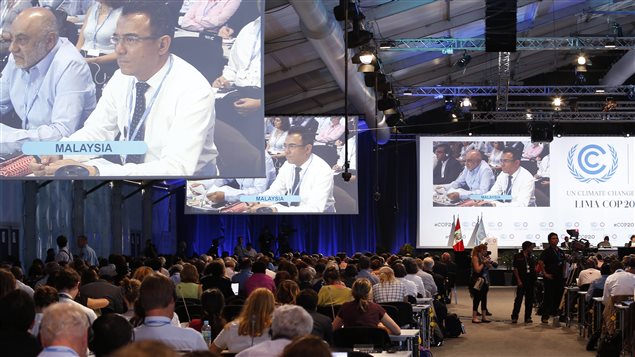While nations squabbled and only managed a watered-down deal at U.N. climate talks in Peru last weekend, some sub-national governments and companies are taking steps to reduce greenhouse gas emissions on their own.
Some 190 nations agreed to some of the terms they will use to try to get an agreement at the climate conference in Paris next December, but the terms were vague as the usual wrangling between rich and poor nations hobbled the talks.
‘Not a very ambitious looking document’
“It has to be said it’s not a very ambitious looking document at the moment,” says Matthew Paterson, professor of political science at the University of Ottawa. “To my mind it’s not looking like the industrialized countries are putting enough on the table in terms of either their own emissions reductions (with the exception of the European Union) and money for developing countries to reduce their emissions as well as adapt to the effects of climate change.”
ListenHowever, for the first time, the parties to this conference did agree for the first time in a U.N. document that the Paris treaty should involve emission limitations from all countries, notes Paterson. Whether that will amount to much is not clear, he says, because leadership from the rich countries is “not as strong as it should be to make that work.”
Sub-national action
But action is being taken behind the scenes, says Paterson, and that is being noticed by delegates, academics, business and industry. He gives the example of China where industry has developed solar and wind efficiencies and has begun to export some. Many cities and region are reducing carbon emissions to improve air quality.
In Canada, the province of British Columbia brought in a carbon tax, the province of Ontario phased out coal-fired electricity plants and there are emission reduction initiatives in Alberta and Quebec.
So while Canada’s national government “is hostile to reducing emissions…” says Paterson, “you have all sorts of initiatives from cities working across the world together from institutional investors, other business groups and so on which I think is starting to change the calculations for some governments taking them in a more positive direction.”







For reasons beyond our control, and for an undetermined period of time, our comment section is now closed. However, our social networks remain open to your contributions.